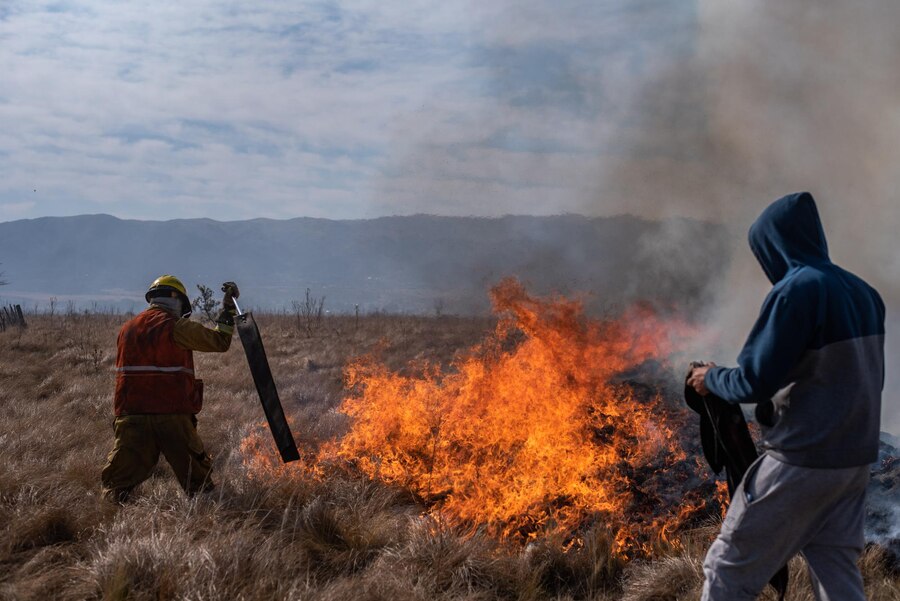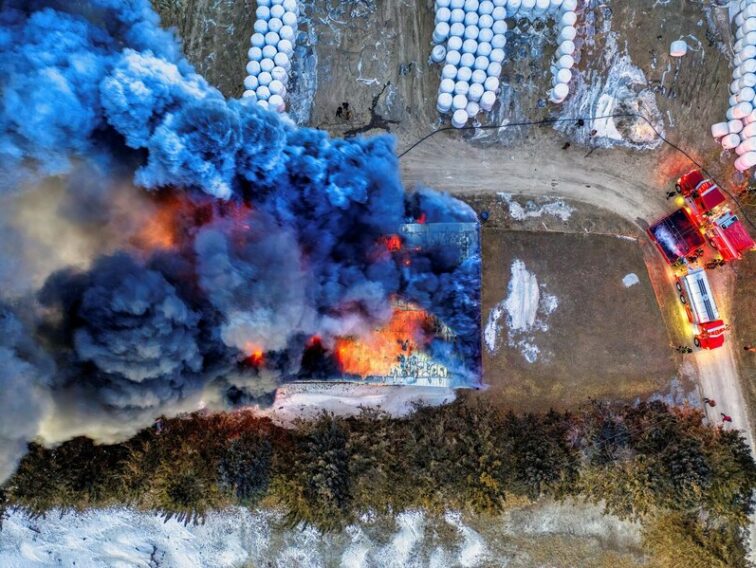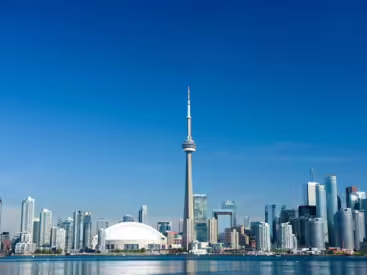Each year, usually between May and September, Canada faces the challenge of wildfires blazing through its forests. These natural disasters have become an unfortunate seasonal reality, affecting lives, homes, and the environment. In 2023, Canada witnessed wildfires of an unprecedented scale, prompting the need for international firefighting assistance. Many Canadians faced devastating losses, losing their homes and livelihoods. Based on early weather pattern predictions, the Canadian government anticipates a potentially catastrophic wildfire season in 2024 and is actively preparing to address this looming threat. Wildfire Relief Measures for Foreign Nationals
Public Policy Considerations
When wildfires strike, individuals in affected areas can find themselves in prolonged crisis situations. This includes foreign nationals such as visitors, workers, and students. The impact on these individuals can be severe, including the destruction of important immigration documents or difficulties in managing their immigration status due to the disruptions caused by wildfires. Wildfire Relief Measures for Foreign Nationals

Recognizing these challenges, the Canadian government has established a temporary public policy under section 25.2 of the Immigration and Refugee Protection Act. This policy aims to provide exemptions from certain requirements of the Immigration and Refugee Protection Regulations for foreign nationals affected by wildfires. Below are the details of the conditions and the exemptions available. Wildfire Relief Measures for Foreign Nationals
Conditions (Eligibility Requirements)
Under this temporary public policy, delegated officers may grant exemptions from specific requirements of the Regulations if a foreign national meets one of the following conditions:
Replacement of Immigration Documents
Eligibility:
Foreign nationals who are temporary residents in Canada and have had their immigration documents destroyed by a wildfire. Wildfire Relief Measures for Foreign Nationals
Action:
These individuals must apply to obtain a replacement status document or visa counterfoil.
Extension or Restoration of Visitor Status
Eligibility:
Foreign nationals in Canada as visitors who have been directly affected by a wildfire, had valid status on July 19, 2024, which expires by November 30, 2024.
Action:
These individuals can apply for:
- An extension of their permission to stay in Canada as a temporary resident in accordance with section 181 of the Regulations.
- Reinstatement of their temporary resident status as per section 182 of the Regulations.
Renewal or Restoration of Work Permit
Eligibility:
Foreign nationals in Canada who have been directly affected by a wildfire, had valid status and a valid work permit on July 19, 2024, which will expire by November 30, 2024.
Action:
These individuals can apply for:
- A renewal of their work authorization in accordance with section 201 of the Regulations.
- An extension of their permission to stay in Canada as a temporary resident under section 181 of the Regulations, or reinstatement of their temporary resident status under section 182 of the Regulations.
Renewal or Restoration of Study Permit
Eligibility:
Foreign nationals in Canada who have been directly affected by a wildfire, had valid status and a valid study permit on July 19, 2024, which expires by November 30, 2024.
Action:
These individuals can apply for:
- A reissue of their study permit pursuant to section 217 of the Regulations.
- An extension of their temporary resident status in Canada under section 181 of the Regulations, or a reinstatement of their temporary resident status under section 182.
Work Permit for Those Unable to Attend Work
Eligibility:
Foreign nationals in Canada with valid status and a valid employer-specific work permit issued under subparagraphs 200(1)(c)(ii.1) or 200(1)(c)(iii) of the Regulations, who have been directly affected by a wildfire and are unable to attend their authorized place of employment.
Action:
These individuals can apply for:
- An extension of their stay in Canada as a temporary resident in accordance with section 181 of the Regulations.
- A work permit issued pursuant to section 200 of the Regulations.
Provisions of the Regulations for Which an Exemption May Be Granted

For Foreign Nationals Meeting Condition 1:
Subsection 311(2):
Exemption from the requirement to pay the processing fee for the replacement of immigration documents.
For Foreign Nationals Meeting Condition 2:
Section 182:
Exemption from the requirement for a visitor, worker, or student to apply for restoration within 90 days after losing temporary resident status.
Section 305:
Waiver of the obligation to pay the application processing fee for extending their authorization to stay in Canada as a temporary resident, in accordance with subsection 181(1).
Subsection 306(1):
Waiver of the application processing fee for reinstating temporary resident status.
Subsection 315.1(1):
Exemption from the obligation to pay for services related to the collection of biometric data.
For Foreign Nationals Meeting Condition 3:
Section 182:
Exemption from the requirement for a visitor, worker, or student to apply for restoration within 90 days after losing temporary resident status.
Paragraph 200(3)(e):
Exemption from the rule preventing the issuance of a work permit to a foreign national who has participated in unauthorized employment or education activities in Canada or has not complied with comply with the conditions of a previous permit or authorization unless specific criteria in 200(3)(h)(i) to (iv) are met.
Paragraph 201(1)(a):
Waiver of the rule that mandates submitting a renewal application for a work permit before the current permit expires.
Subsection 299(1):
Exemption from the requirement to pay the application processing fee for a work permit.
Subsection 303.2(1):
Release from the obligation to pay fees associated with the rights and benefits granted through a work permit.
Section 305:
Waiver of the application processing fee for extending their temporary resident status in Canada, as outlined in subsection 181(1).
Subsection 306(1):
Waiver of the application processing fee for the restoration of temporary resident status.
Subsection 315.1(1):
Exemption from the requirement to pay for the provision of service in relation to the collection of biometric information.
For Foreign Nationals Meeting Condition 4:
Section 182:
Exemption from the requirement for a visitor, worker, or student to apply for restoration within 90 days after losing temporary resident status.
Paragraph 217(1)(a):
Exemption from the requirement that an application for renewal of a study permit be made before the expiration of the study permit.
Section 221:
Exemption from the requirement that a study permit not be issued to a foreign national who has engaged in unauthorized work or study in Canada or who has failed to Adhere to the permit’s requirements unless the particular conditions outlined in sections 221(a) through 221(c) are satisfied.
Subsection 300(1):
Exemption from the requirement to pay the application processing fee for a study permit.
Section 305:
Waiver of the fee obligation for processing applications to extend temporary resident status in Canada as outlined in subsection 181(1).
Subsection 306(1):
Waiver of the application processing fee for reinstating temporary resident status.
Subsection 315.1(1):
Exemption from the requirement to pay for the provision of service in relation to the collection of biometric information.
For Foreign Nationals Meeting Condition 5:
Paragraph 200(1)(c):
Exemption from the requirement to be described under this paragraph of the Regulations.
Subsection 299(1):
Exemption from the requirement to pay an application processing fee for a work permit.
Subsection 315.1(1):
Exemption from the requirement to pay for the provision of service in relation to the collection of biometric information.
Other Admissibility and Selection Criteria
Foreign nationals who qualify under this public policy must still adhere to all other legislative admissibility and selection criteria that are not waived by this policy or any other public policy.
Conclusion: The temporary public policy introduced by the Canadian government demonstrates a proactive and compassionate approach to support foreign nationals affected by the 2024 wildfire season. By providing exemptions to various immigration regulations, Canada aims to alleviate some of the stress and uncertainty faced by these individuals. This policy not only helps in replacing lost documents but also ensures that affected individuals can maintain their legal status in the country without additional financial burdens.
Disclaimer
This blog post is meant solely for informational use and should not be interpreted as legal counsel. Although we strive to provide accurate details, please be aware that immigration laws and guidelines may evolve over time. For the most current and personalized advice, please consult with an immigration professional or visit the official website of Immigration, Refugees and Citizenship Canada (IRCC).
Source: www.canada.c

Get Free Expert Advice: Are you ready to embark on your next adventure? Whether you’re seeking a work permit, tourist visa, or study opportunities in Canada or other countries, we’re here to help! Contact us today to learn how our expert services can simplify your journey and turn your dreams into reality. Reach out now and let’s start planning your future together!
- Discover Canada’s Updated CRS Score System: Easier Access to Permanent Residency
- Canada’s New Immigration Policy: Ending ‘Flagpoling’ for Post-Graduation Work Permits
- Exploring Canada’s Healthcare System: Reliance on Temporary Workers and Economic Immigration
Also read:
- Latest IRCC Processing Times for March 2025 – Major Updates Revealed
- New Canada Immigration Fees Effective December 1, 2024
- Canada’s 2024 Wildfire Relief Measures for Foreign Nationals
- Your Canadian Immigration Journey: 10 Strategies to Raise Your CRS Score
- Work in Canada: Secure Your Work Permit with MS Overseas Consultant



